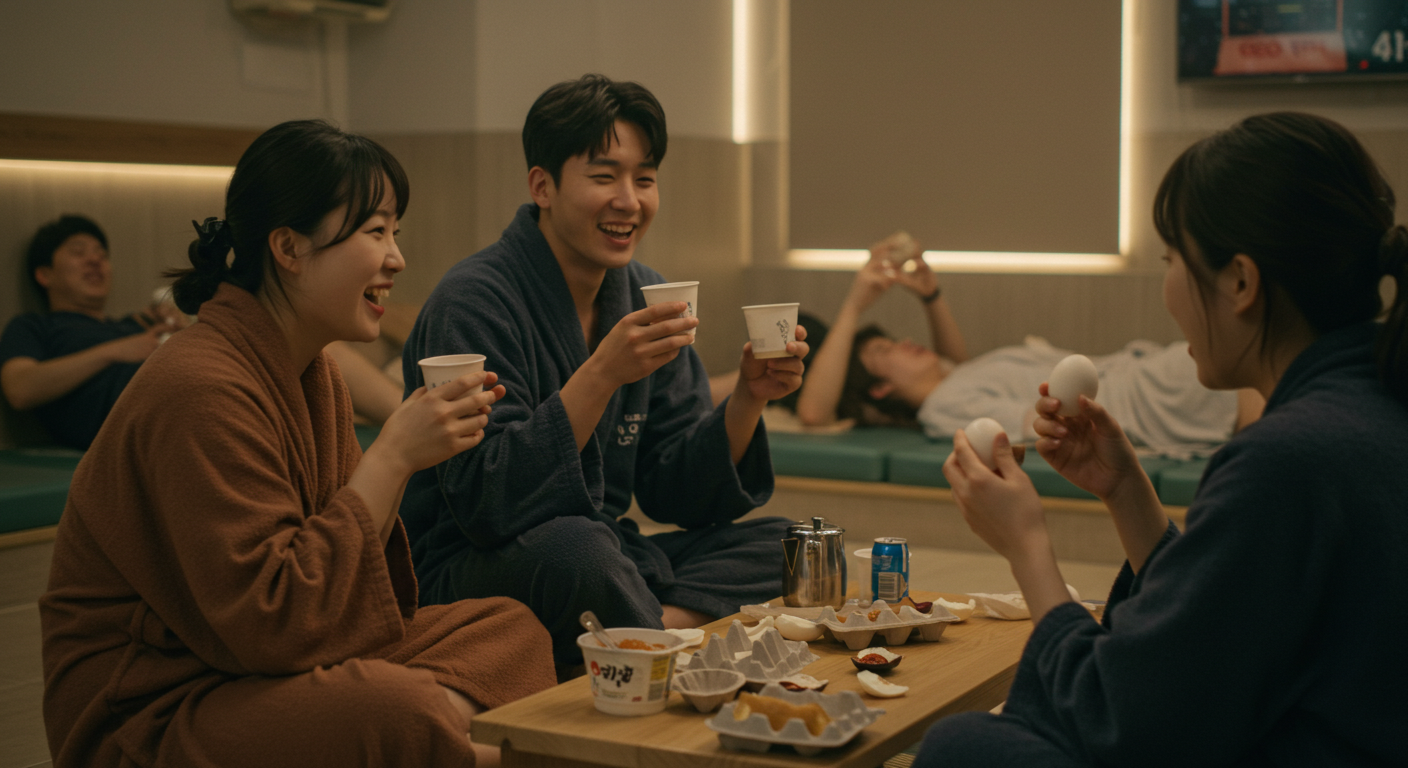“Please take off your shoes.”
A familiar phrase, but what follows in a Korean jjimjilbang is unlike anything I’ve experienced before.
What I thought would be a regular Korean sauna turned out to be a deep cultural immersion — a unique healing space I never knew I needed.
Stepping Into the Jjimjilbang – A Cultural Shock
It was a late evening when my Korean friend suggested we visit a jjimjilbang. I hesitantly agreed, not knowing what to expect.
After receiving a set of yellow clothes at the front desk and passing through the gender-separated bath area, I entered a large, warm hall — and my eyes widened.
People were sprawled out on the floor. Some were sleeping, others were chatting quietly, and many held boiled eggs and sweet rice drinks. I was officially inside Korean jjimjilbang culture, and it was unlike any spa or sauna I had seen in the West.
Eggs and Rice Drink – An Odd Combo with Deeper Meaning
One cannot visit a jjimjilbang without eating the iconic boiled eggs and sipping sikhye (sweet rice drink).
At first, I questioned the pairing — why eggs, of all things? But as I peeled one and took a bite after sweating in a hot room, I understood.
It wasn’t just a snack. It was a ritual. A way to blend into the rhythm of the jjimjilbang, to share in something culturally meaningful.
A Space for Silent Bonds – The Warmth of Community
This place was more than a sauna. It was a shared resting space.
Parents and children lying side by side, friends laughing under towels, solo visitors reading quietly — all in silent harmony.
There was a warmth beyond the temperature. In that silence, I felt connection — a collective pause.
I realized that Korean sauna culture is built on empathy and unspoken togetherness — the very essence of jeong (정), Korea’s unique cultural sense of emotional closeness.
Becoming Part of It – Letting Myself Rest
Eventually, I found myself lying down on the heated floor of a stone room.
My body relaxed. So did my mind.
In this space, there were no titles, no status — just people resting together. That’s the quiet power of a true healing space.
I wasn’t just observing Korean jjimjilbang culture anymore. I was part of it.
A Shift in Perspective – Missing the Jjimjilbang
What began as a casual experience turned into a meaningful memory.
Now living abroad, I sometimes long for that quiet room, those shared silences, the gentle rituals.
The jjimjilbang is more than hot air and relaxation — it’s a microcosm of Korean life. A culture of warmth, both physical and emotional.
Korean sauna culture taught me the beauty of slowing down and resting — not alone, but together.
Explore more about Korean wellness traditions: Digital Healthcare Apps: Your Health Ally or Privacy Risk?
